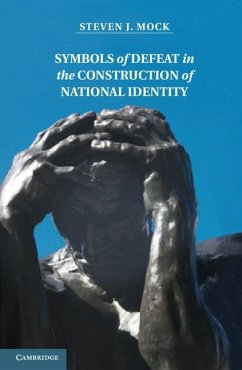If nationalism is the assertion of legitimacy for a nation and its effectiveness as a political entity, why do many nations emphasize images of their own defeat in understanding their history? Using Israel, Serbia, France, Greece and Ghana as examples, the author argues that this phenomenon exposes the ambivalence that lurks behind the passions nationalism evokes. Symbols of defeat glorify a nation's ancient past, while reenacting the destruction of that past as a necessary step in constructing a functioning modern society. As a result, these symbols often assume a foundational role in national mythology. Threats to such symbols are perceived as threats to the nation itself and consequently are met with desperation difficult for outsiders to understand.
Dieser Download kann aus rechtlichen Gründen nur mit Rechnungsadresse in A, B, BG, CY, CZ, D, DK, EW, E, FIN, F, GR, HR, H, IRL, I, LT, L, LR, M, NL, PL, P, R, S, SLO, SK ausgeliefert werden.









